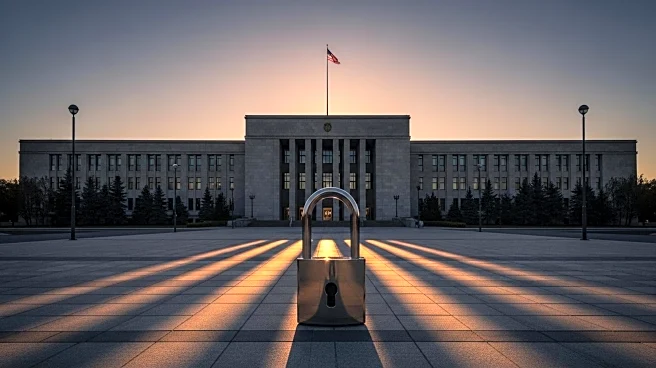What's Happening?
The U.S. government shutdown has entered its second week as the Senate failed to pass rival funding bills. The Republican-written bill to reopen the government was defeated in a 52-42 vote, while the Democrats' proposal was rejected in a 50-45 party-line vote. The shutdown has led to the closure of many federal agencies, with employees being told to stay home. The Trump administration has warned of potential federal workforce cuts. Democrats are demanding healthcare-centered concessions, including an extension of Affordable Care Act premium tax credits, as part of any funding agreement. President Trump has indicated a willingness to negotiate on healthcare subsidies, although Democrats have denied any outreach from the White House.
Why It's Important?
The prolonged government shutdown has significant implications for federal employees, who face missed paychecks, and for public services, which are disrupted. The political stalemate reflects deep divisions over healthcare policy, with Democrats seeking to protect ACA subsidies and Republicans resisting these demands. The shutdown also affects public opinion, with polls showing a narrow edge for Democrats in terms of blame. The situation underscores the challenges of bipartisan cooperation in Congress and the potential economic impact of a prolonged shutdown.
What's Next?
The Senate is expected to continue holding votes on funding bills, but there is little indication of a breakthrough. The House remains in recess, with Speaker Mike Johnson pressuring Senate Democrats to support the Republican bill. The shutdown could lead to layoffs if it continues, affecting federal workers and public services. The political impasse may persist unless both parties can reach a compromise on healthcare and other contentious issues.
Beyond the Headlines
The shutdown highlights broader issues of governance and the impact of political polarization on legislative processes. The use of government funding as a bargaining chip raises ethical questions about the prioritization of political agendas over public welfare. The situation may also influence future electoral dynamics, as public dissatisfaction with the shutdown could affect voter sentiment.










